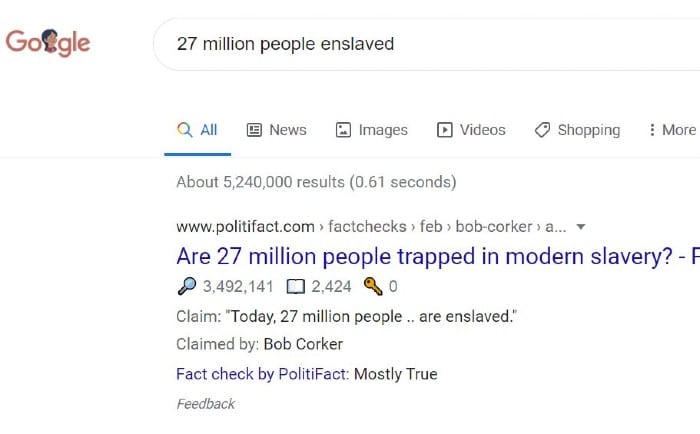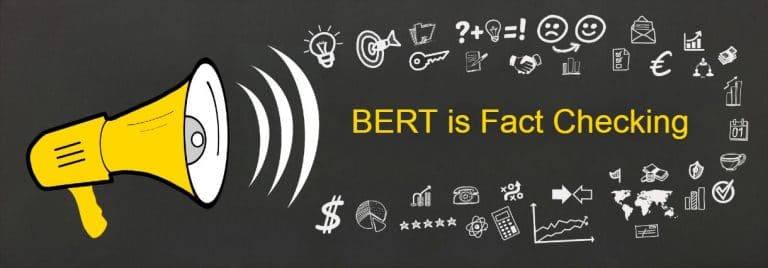Google made the announcement about the changes and updates that they have made to Google Search, Google News, fact checking and autocomplete using BERT and language processing.
Google is not just looking to provide the best search results that are as relevant as possible, but they are fact checking to make sure the results are as reliable as possible.
When it comes to YMYL, your money your life sector, reliability is of great concern. Especially with the election coming up and health news during the pandemic.
Highlights that Google brought to our attention:
- Auto-complete policy change around elections. They are showing less vs more and being conservative about serving the info.
- Google’s BERT is now used to fact check news stories.
- Google is working with Wikipedia to find and remove vandalism that Google might have used in knowledge panels.
- Breaking news stories are being detected by Google in a few minutes versus 40 plus minutes where they used to be.
Bert’s “Full Coverage”
Google launched this update to BERT (a language AI Model) to improve the information between news stories and available fact checks. They can better understand if a fact check claim relates to the central topic and brings about those fact checks more prominently in FULL Coverage.
Full Coverage
Full Coverage is a news feature that provides a complete picture of how a story is reported from a variety of sources. It lets you see top headlines from different sources which include videos, local news, FAQ’s and a timeline for stories.
Pandu Nayak, Google’s Fellow and Vice President of Search said these updates were more about ongoing changes Google has made over the years vs a new product or feature launching.
When was GOOGLE’s BERT Launched?
Google started rolling out BERT in October of 2019. This included feature snippets, but only for English-language queries. The algorithm will include other languages, but a set time has not been announced.
What is BERT?
BERT is a Bidirectional Encoder Representation from Transformers or BERT for short. This technology enables anyone to train their own state of the art question answering system.
These Transformers (encoder-decoder architecture models) process words and how they relate to all the words in a sentence instead of one-by-one in order. So, BERT can understand the full context for ranking, auto complete, and featured snippets in search.
Machine learning and Natural Language Processing or NLP have made tremendous leaps. Learn more about pre-trained contextualized embeddings and BERT’s Word Embedding Extraction.
Breaking News
In the past, Google could take up to 40 minutes to detect breaking news queries. But with these updates, Google should be able to detect breaking news stories within a few minutes. Sometimes these queries would populate inaccurate information.
But now Google should be able to deliver the types of sites it wants to show for those queries early on. They should show more authoritative results that match the E-A-T guidelines. E-A-T stands for expertise, authoritativeness, and trustworthiness.
How to find spot checks in Search, News, and Google Images
Google makes it simple to spot fact checks by displaying fact check labels. These labels come from publishers that use ClaimReview Schema to mark up the fact checks they have completed.
Google News Initiative (GNI)
Currently, fact checks have been completed on search and news more than 4 billion times. Google News Initiative (GNI) has added $6.5 million to help fact checking organizations and nonprofits focus on misinformation about the pandemic.
They are supporting First Draft, the non-profit that is providing an online resource hub for training and crisis simulations for reporters covering COVID-19. According to Google, adding this label does not affect ranking.
YouTube also utilizes ClaimReview to fact check information panels in the US, Brazil, and India.
Conservative approach with Auto-Complete
The Senior Director of Trust and Safety at Google, David Graff said they will take a conservative approach with what suggestions show up in Auto-Complete. So around elections, as well as other areas, they will show fewer suggestions.
They do not want predictions that could be interpreted about voting methods, status of voting locations, or the integrity of the electoral process.
Google Search Quality Raters
Google contracts with more than 10,000 search quality raters worldwide to evaluate their search results. These raters cannot change Google results. But the information that they provide improves the search algorithms. These quality raters have a set of Google Rater General Guidelines that they follow.
Google is always working to improve their search experience. But that also means that we should be continually improving our own sites to insure we are providing the highest quality, relevant and reliable results with accurate content for the optimal user experience.

Allan Todd is CEO of Pagecafe Digital Marketing. In 2022, Allan teamed up with Infront Webworks to provide digital marketing, website design, content marketing, SEO and strategy and solutions to local businesses. Allan lives in Colorado Springs.


